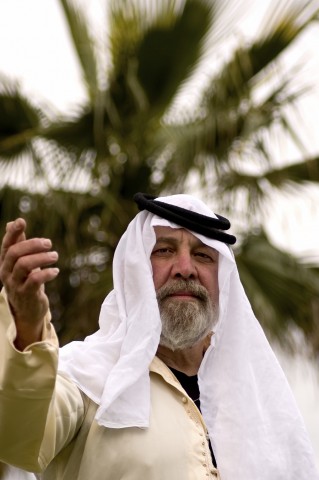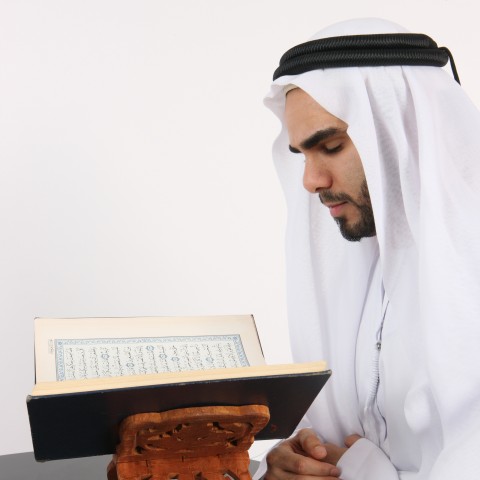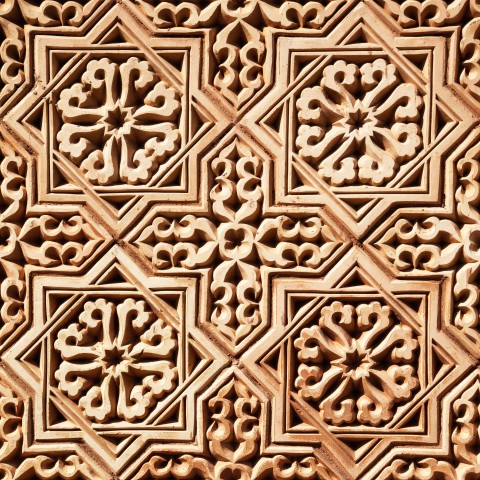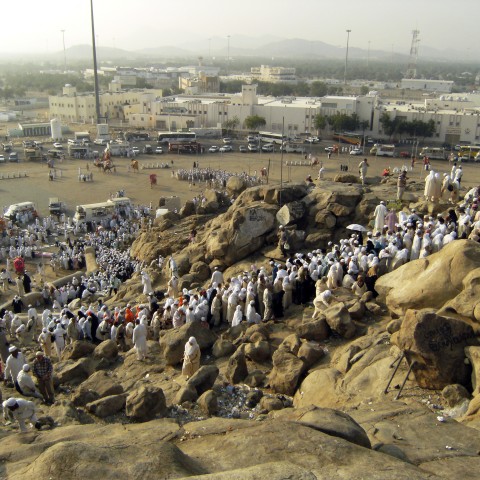
Whether you’ve enrolled in a formal Arabic class or are picking up the language out of personal interest, you should probably start getting familiar with the culture as well.
Becoming familiar with Arab culture and traditions means understanding a lifestyle and point of view far removed from what you’re used to.
Of course, Arabic is spoken in many countries and each of them has its own cultural norms. However, on this page, you’ll get a brief glance at the way culture and language intersect in Arab society.
 Table of Contents
Table of Contents
1. Values and Beliefs

Generally speaking, Arab culture values tradition and strength.
You can see that in the language to some extent, where the Classical Arabic language has diverged significantly into the modern dialects spoken by millions of people in different countries today. Even though this change has taken place naturally, the standards and styles of the classical language, or fus’ha, have been artificially preserved as the only correct way to write in Arabic.
Arabs look to their leaders, both religious and political, for guidance. For example, many Arabs living abroad are happy to follow the teachings of religious scholars in their home countries instead of local ones.
Individual strength and power are also considered very desirable qualities in Arab culture. People strongly dislike being embarrassed in public, and so it’s practically unheard of for an employee to directly contradict their superiors in business meetings, for example. Societies, schools, and businesses are organized into rigid hierarchies, and it’s considered quite rude for an outsider to “shake things up” by subverting that hierarchy.
This sense of hierarchy extends into the household, as parents are seen to have absolute authority over their children. Even in households that aren’t particularly conservative, young adults routinely ask for their parents’ advice on life choices in a way that seems unusual to people living in more independent societies. From a Western point of view, this seems overly restrictive, but from an Arab point of view, it provides much-needed structure and allows young people to learn from the mistakes their elders made.
The other side of this, of course, is the famous culture of welcoming and hospitality. No one can say that Arabs are unwilling to receive guests or share what they have with others.
Anyone who’s traveled to an Arab country knows this from experience. People are extremely welcoming to foreigners and strangers in general, showing them great respect and going the extra mile to make sure they’re comfortable. You can see this even in big-name brands like Emirates Airlines, where customer service is a main selling point.
2. Philosophies and Religions

In Arab culture, religion is a cornerstone of society.
The stereotypical person living in the Middle East follows Islam, and indeed an overwhelming majority of Arabs are Muslims. This is hardly surprising, given that the Middle East is the birthplace of Mohammed and the site of the Kaaba in Mecca, the destination for millions of Muslims around the world every year during their Hajj.
Different countries in the Middle East (and different regions in those countries) follow different schools of Islam such as Shia, Sunni, and Khariji.
The Middle East also conceived the other Abrahamic religions, Judaism and Christianity. Virtually none of the Jews in the Middle East identify as Arabs, though they may speak Arabic fluently and live among Arabs.
Arab Christians, on the other hand, number in the millions in Egypt, the Levant, and abroad. Arab Christians, despite their religious minority status, tend to be well-educated and relatively wealthy. Many have also played major roles in the culture and politics in their own countries.
Islam is the official religion in:
- Algeria
- Egypt
- Iraq
- Jordan
- Kuwait
- Libya
- Morocco
- Qatar
- Palestine
- Oman
- Saudi Arabia
- Somalia
- Tunisia
- United Arab Emirates
- Yemen
Of the Arabic-speaking countries, only Lebanon and Syria have no state-mandated religion.
Turning our attention away from religion briefly, philosophers from the Islamic Golden Age (a period from about 700 CE to 1200 CE) have been sorely overlooked in most Western educational curricula. Many, like Abu Bakr Muhammad ibn Zakariyya al-Razi, were extremely well-educated polymaths who wrote on medicine, law, chemistry, and ethics. Although one imagines them as religious scholars, some (like Al-Ma’arri) were agnostic or irreligious.
Today, since most Arabic speakers can read Classical Arabic, their texts are available and read in their original form much more widely than those of European philosophers of comparable times!
- → To learn the names of different religions in Arabic, check out our Religion vocabulary list!
3. Family
In keeping with the more traditional attitudes that have been the norm in many Arab societies, the family, or أسرة (‘usra), is extremely important.
Most families are nuclear, with a husband, a wife, and two kids. Same-sex relationships are strongly looked down upon by society in virtually all of the Arabic-speaking countries in North Africa and the Middle East, and same-sex marriages are illegal in all of them as of 2020.
The father figure is the center of the Arabic family, and he is expected to protect and take care of his wife and children financially. A woman is traditionally expected to focus on her children first, though in modern metropolises it’s becoming more common for the wife to work as well.
Although men hold power over women in theory, they also seek their partners’ opinions on business and financial matters. Spouses generally make decisions as a couple.
Children are taught to respect their elders and assume their gender roles early. In Arab culture, elders (such as a grandparent or elderly aunt or uncle) will live in the same house as the nuclear family to be taken care of in old age.
4. Art

If you’re keen on understanding Arab culture, becoming familiar with its artwork is a must.
Just as the Classical Arabic language has been preserved in Modern Standard Arabic, the art of writing the language has been finely developed over the centuries. Arabic calligraphy is a highly respected art form, tightly associated with Islam.
Just look at the flag of Saudi Arabia, for instance, featuring a sword under the shahada, or Islamic creed: “There is no god but Allah and Mohammed is his prophet.” That’s perhaps one of the most recognizable phrases in Arabic calligraphy. By the way, since these are holy words, the Saudi flag is never printed on merchandise or lowered to half-mast in order to avoid disrespecting the creed.
The Arab world has an extremely rich architectural heritage. It’s known for richly dyed stone, soaring arches, intricate tilework, and iconic pillars. This design language has spread around the world, so that whether you go to a mosque in New York, Baghdad, or Kuala Lumpur, you’ll see the same types of designs.
5. Food

We’ve actually come out with a separate article on food recently, so we won’t go into too much detail at this point.
However, suffice it to say that Arab food is based on a lot of grains, meats, herbs, and light sauces without being either spicy or bland.
Chickpeas and beans are staples in the Arab diet, as are rice, pocketbreads, and flatbreads.
Some cuisines require the whole family to share! Food is a social activity in Arab culture, way more so than in Western countries. It’s not unusual, for example, for wedding feasts or even birthday celebrations to involve massive consumption of food and drink—on the level of an entire roasted goat or cow!
Out at restaurants, Arabs tend to fight over who gets to pay the bill, not who has to pay the bill. This can cause feelings of discomfort for people who aren’t able to reciprocate, but the message is one of warmth and kindness. If you feel like you need to pay your friends back for a meal, then you’ll be more likely to hang out with them and enjoy their company in the future.
The Arab palate is no stranger to foreign food, such as Italian pasta, American steak, Chinese noodles, and Japanese sushi. Unfortunately, delicious Arab food from either the Middle East or North Africa has yet to make its way to mainstream culture in the rest of the world.
One thing to note is that pork and alcohol are almost never served in restaurants because they’re considered haram (“forbidden”) in Islam. Pigs are considered unclean animals, and devout Muslims are forbidden from touching or eating them. Consumption of alcohol and drunkenness are considered sins in Islam.
Despite that strict proclamation against both, spirits are brewed and pigs are raised in smaller numbers in many Arab countries such as Egypt and Lebanon. In international areas of major cities, it’s also easy to find hotels catering to foreign guests and serving alcohol or the occasional bacon sandwich. Not in Saudi Arabia, though—it’s actually illegal to bring any pork or alcohol into the country.
- → To learn more on this topic, check out our Culture Class lesson on Arab Foods!
6. Traditional Holidays

In Arab culture, holidays are often a time to get together with loved ones and enjoy each other’s presence.
The most famous holiday in the Middle East is the same for Muslims everywhere: Ramadan, the holy month of the Islamic calendar. From sunup to sunset each day of this month, Muslims are not allowed to eat or drink (though of course, concessions are made in case of illness or emergency). This is a time for joyous celebration and visiting friends and family. These days, it’s also a huge shopping holiday, with brands offering Ramadan specials left and right.
Different Arab countries naturally have their own holidays as well. New Year’s Day is a big one, and since all Arab countries were colonized by European powers at some point, their relative independence days are great cause for celebration!
7. Conclusion
Culture and language are always deeply intertwined.
In order to really get to know Arab customs and culture, you’ve got to learn Arabic. These are things you can’t see through the lens of translation.
Fortunately, you’re already in the best place to do that: ArabicPod101.com. We offer podcasts, videos, vocabulary lists, and flashcards to help you start from zero and get all the way up to an advanced level.
Each of our podcast episodes and most of our blog articles have a heavy focus on cultural notes, too. By the end of your Arabic education, you’ll feel like you’ve developed a deep and comfortable understanding of Arab culture. Create your free lifetime account today and start uncovering Arabic with ArabicPod101!
After reading this page, what are your thoughts on Arab culture? Is there any aspect we didn’t include that you want to learn about? Let us know in the comments!










